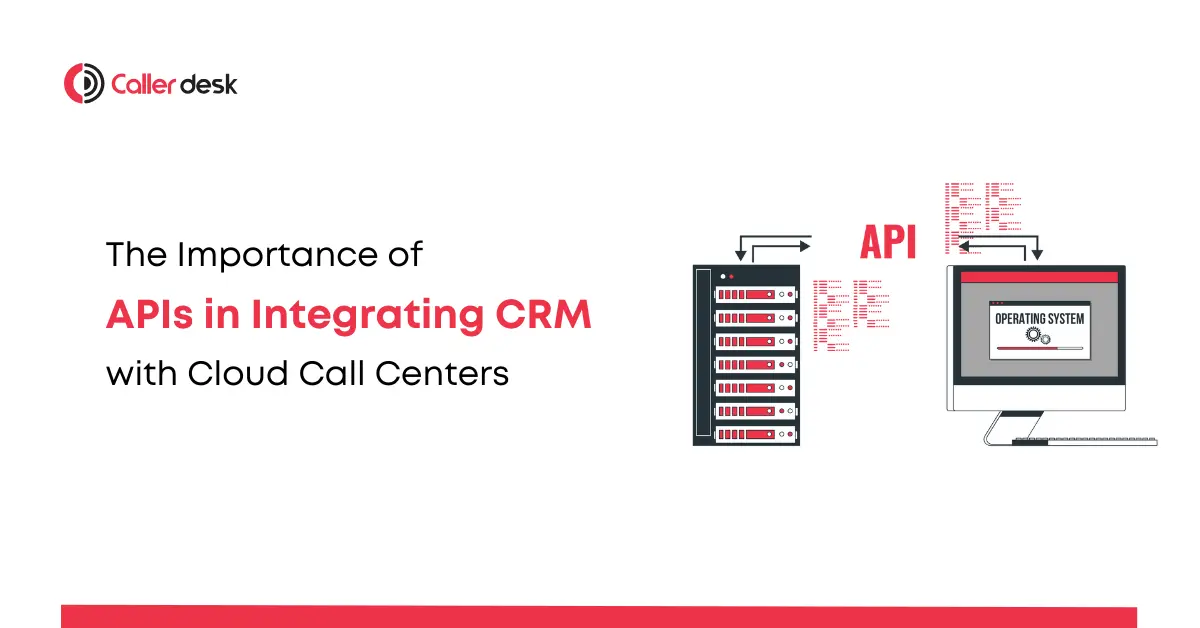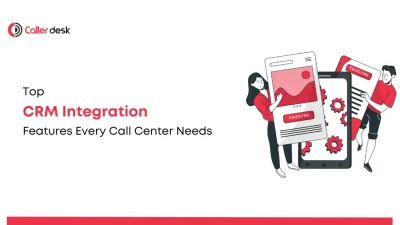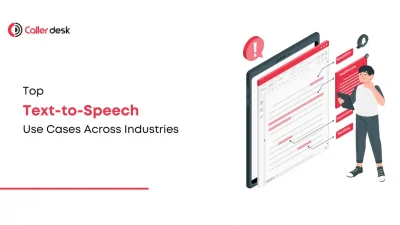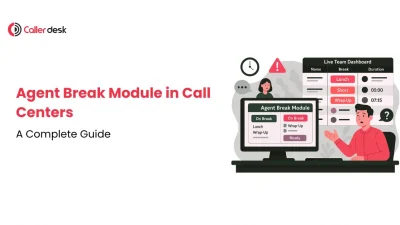Delivering outstanding customer service requires seamless communication and access to accurate, real-time information. Businesses today rely on tools like Customer Relationship Management (CRM) systems to organize customer data and cloud call centers to manage interactions across channels like phone, email, and chat.
However, managing these systems separately can lead to inefficiencies, data silos, and slower response times. This is where APIs (Application Programming Interfaces) play a transformative role. APIs act as connectors that enable CRM systems and cloud call centers to work together, ensuring that customer interactions are smooth, personalized, and efficient.
In this guide, we’ll explore how APIs enable CRM and cloud call center integration, why this integration is vital for modern businesses, and the key benefits it brings to customer service and operational efficiency.
Understanding APIs: The Backbone of Integration
What Are APIs?
APIs are sets of rules, protocols, and tools that enable different software systems to communicate and exchange data in real-time. By acting as intermediaries between systems, APIs facilitate seamless data flow, ensuring that information is always up-to-date and accessible.
For example, when a customer calls your cloud call center, an API pulls relevant details from your CRM—such as their purchase history, past interactions, and preferences—and displays them on the agent’s screen. This real-time access allows agents to provide personalized and efficient service, boosting customer satisfaction.
Why API Integration is Essential for CRM and Cloud Call Centers
Integrating CRMs with cloud call centers through APIs is no longer a luxury; it’s a necessity for businesses looking to stay competitive. Here’s why:
1. Comprehensive Customer Insights
APIs enable a 360-degree view of the customer by consolidating data from the CRM and cloud call center. Agents can access all customer-related information, including past interactions, preferences, and issues, in a single interface.
Example: A telecommunications company can use API integration to display a customer’s plan details, recent service requests, and billing history during a call, allowing agents to address concerns effectively and upsell relevant services.
Benefit: Comprehensive insights lead to highly personalized interactions, improving customer satisfaction and loyalty.
2. Real-Time Data Synchronization
APIs ensure that any changes made in the CRM are instantly reflected in the cloud call center system and vice versa. This eliminates data silos and ensures consistency.
Example: If a customer updates their contact information in the CRM, the change is immediately visible to call center agents, ensuring smooth communication during subsequent interactions.
Benefit: Real-time synchronization minimizes errors and enhances the accuracy of customer data.
3. Faster Query Resolution
When agents have instant access to complete customer data, they can resolve issues more quickly and efficiently.
Example: An e-commerce company can use API integration to provide agents with real-time order tracking details, enabling them to respond to delivery-related queries promptly.
Benefit: Faster query resolution boosts customer satisfaction and reduces average handling times (AHT).
4. Automation for Increased Efficiency
APIs automate repetitive tasks such as data entry, follow-ups, and report generation, allowing agents to focus on higher-value activities like problem-solving and building relationships.
Example: An API can automatically log call details in the CRM, create follow-up tasks, and send automated emails summarizing the interaction.
Benefit: Automation reduces human errors and improves overall operational efficiency.
5. Scalability for Growing Businesses
As businesses expand, their communication needs evolve. APIs provide the flexibility to scale operations without major disruptions.
Example: A startup that begins with a small team can use APIs to integrate additional communication channels like chat and social media as it grows, ensuring consistent customer service across all platforms.
Benefit: APIs support business growth by enabling easy adaptation to changing requirements.
How APIs Enhance the Cloud Call Center Experience
1. Unified Communication Across Channels
APIs connect cloud call centers with multiple communication platforms, including email, live chat, and social media. This omnichannel approach ensures that customers receive consistent service, regardless of how they choose to interact.
Example: A customer who starts a conversation via live chat can switch to a phone call, with the agent having access to the entire interaction history.
Benefit: Unified communication creates a seamless and efficient customer experience.
2. Customizable Workflows
APIs allow businesses to design workflows tailored to their unique requirements, ensuring that customer needs are met efficiently.
Example: A healthcare provider can use APIs to route urgent calls directly to specialists while directing routine inquiries to general support staff.
Benefit: Custom workflows improve efficiency and ensure that customers are connected to the right resources.
3. Advanced Reporting and Analytics
APIs enable businesses to integrate their call center software with analytics tools, providing detailed insights into customer behavior and operational performance.
Example: APIs can generate custom reports that track key metrics like call volumes, resolution times, and agent performance, helping managers identify areas for improvement.
Benefit: Data-driven decision-making enhances service quality and optimizes resource allocation.
Why Choose CallerDesk for API Integration?
CallerDesk stands out as a leading solution for API integration, offering unparalleled benefits for businesses:
- Seamless Integration: Easily connect with top CRMs like Salesforce, HubSpot, and Zoho for real-time data sharing.
- Scalable Solutions: Adapt to business growth with the ability to add new features, channels, and users effortlessly.
- Enhanced Security: Protect customer data with robust encryption and compliance with global standards like GDPR.
- Custom Workflows: Design tailored workflows to meet industry-specific needs.
- Comprehensive Support: Benefit from 24/7 customer support to address any integration challenges.
Real-World Applications of API Integration
1. E-Commerce
Use Case: Sync order data with call center software to provide real-time updates on shipping and returns.
Benefit: Improved customer satisfaction through faster resolutions.
2. Financial Services
Use Case: Automate identity verification during calls to enhance security.
Benefit: Increased compliance and reduced fraud risks.
3. Healthcare
Use Case: Integrate patient records with call center software for streamlined appointment scheduling and follow-ups.
Benefit: Enhanced patient care and operational efficiency.
Conclusion
APIs are the backbone of modern CRM and cloud call center integration. They enable seamless data sharing, automate workflows, and equip agents with the tools they need to deliver exceptional customer service.
With CallerDesk’s API-driven solutions, businesses can unlock new levels of efficiency, scalability, and customer satisfaction. Whether you’re in e-commerce, healthcare, or financial services, APIs ensure that your call center operations are tailored to your unique needs.
Ready to transform your customer service? Contact CallerDesk today to schedule a Free demo and discover how our API-powered solutions can revolutionize your cloud call center.
Frequently Asked Questions
1. What is API integration, and why is it important for CRM and cloud call centers?
API integration allows different software systems, like CRMs and cloud call centers, to communicate and share data seamlessly. It ensures real-time synchronization, streamlines workflows, and enhances customer service by giving agents instant access to critical information.
2. How does API integration improve customer experience in a call center?
API integration enables real-time access to customer data, such as purchase history and previous interactions, allowing agents to provide personalized and faster responses. It also supports omnichannel communication, ensuring customers receive consistent service across all channels.
3. What are the benefits of using APIs in cloud call centers?
Key benefits include:
Real-time data sharing between systems
Automation of repetitive tasks
Enhanced reporting and analytics
Scalability for growing businesses
Improved agent efficiency and customer satisfaction
4. Can APIs integrate with any CRM platform?
Most modern CRMs like Salesforce, HubSpot, and Zoho support API integration. However, it’s essential to choose a cloud call center solution, like CallerDesk, that offers seamless compatibility with these platforms for hassle-free integration.
5. Are APIs secure for call center operations?
Yes, APIs can be secure when implemented correctly. CallerDesk’s APIs, for example, use robust encryption protocols and comply with data protection standards like GDPR to safeguard sensitive customer data.
6. How does API integration help with omnichannel communication?
APIs consolidate customer interactions from various channels—such as phone, chat, email, and social media—into a unified interface. This allows agents to manage all conversations seamlessly and deliver consistent customer service.
7. What industries benefit most from API integration in call centers?
API integration benefits all industries, but it’s particularly impactful for:
E-commerce: Sync order tracking and automate follow-ups.
Healthcare: Provide patient histories and automate appointment reminders.
Banking: Streamline KYC processes and ensure secure communication.
8. How can CallerDesk’s API solutions improve my call center operations?
CallerDesk offers API integration that connects your CRM, cloud call center, and other business tools into one efficient platform. It enhances agent productivity, automates workflows, and scales effortlessly to meet growing business demands.
9. Do APIs require technical expertise to implement?
While API integration may require initial technical setup, platforms like CallerDesk simplify the process with detailed documentation, user-friendly dashboards, and dedicated customer support.
10. How can I start integrating APIs with my CRM and cloud call center?
You can begin by assessing your current systems and integration needs. Partnering with a provider like CallerDesk ensures seamless API integration, along with support for custom workflows tailored to your business requirements.





